UATX Freshman Fights for Gen Z Health in Washington.
Grace Price: "Why is Generation Z plagued with more disease than ever when we are the most technologically advanced?"
Last week, I watched freshman Grace Price defend her generation’s well-being at a historic Senate roundtable in our nation’s capital.
Price, 18, studies Aristotle’s Nicomachean Ethics in her UATX seminar in the morning, reads epigenetics papers in the afternoon, and cooks meals from scratch for her roommates in the evening.
Last week, she flew from Austin to Washington to decry processed foods as “the new cigarettes.”
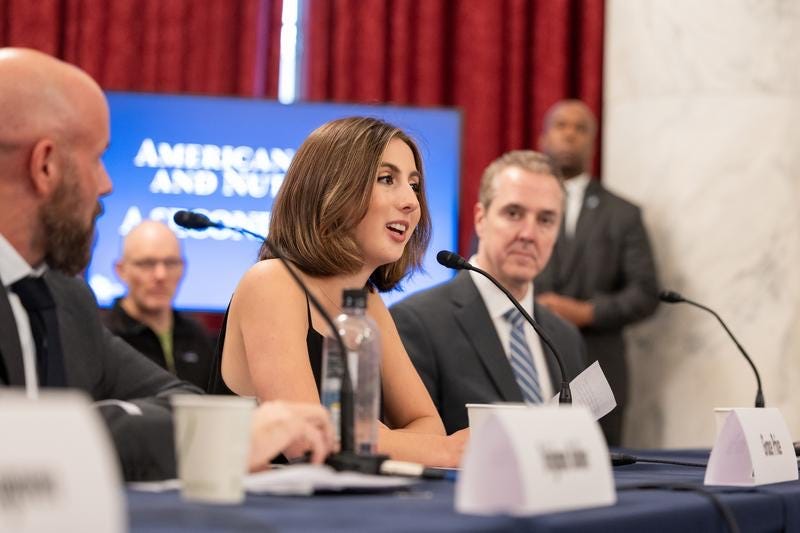
Price publicizes the forces wreaking havoc on the health of her peers, most recently at a Senate roundtable on food and nutrition led by U.S. Senator Ron Johnson.
Price joined Johnson and a group including Robert F. Kennedy Jr., author and psychologist Jordan Peterson, medical doctor and New York Times bestselling author Casey Means, Truemed cofounder Calley Means, activists Vani Hari and Alex Clark, and fitness expert Jillian Michaels.
“We’ve all worked in silos and have never been pulled into the same area before this event,” Price told me. “That’s what I think is so powerful about this. You can feel how unified everyone is. We’ve worked tirelessly on the same mission for so long, and now we have become a team ready to take on the American chronic disease crisis.”
Their speeches were met by standing ovations from a Washington crowd of hundreds that packed a large room and overflowed into another.
In introducing herself at the roundtable, Price cited the “pressing need for someone to speak about the dire situation of teenagers’ health across America.”
“Maybe it takes someone close enough to the problem to question things others have left untouched.
“As our nation's health declines, chronic diseases are no longer confined to the elderly.
“Early-onset cancer has increased by 79% in the past three decades, and obesity is on track to replace smoking as the number one preventable cause of cancer. One in five of us is obese and one in six of us is overweight.
“18.7% have non-alcoholic fatty liver disease, close to 30% are pre-diabetic, and about one in five adolescents report symptoms of anxiety or depression, and one in seven will go on to develop a mental health disorder. Rates of these conditions were close to zero percent 50 years ago.
“Why is Generation Z plagued with more disease than ever when we are the most technologically advanced?
“Our modern diet was formed by years of corruption within food conglomerates, feuds between nutrition science researchers, and backroom bargains that involved our most trusted health institutions.
“There's nothing more profitable than a child in this country. Why else would the food and beverage industry spend $2 billion per year advertising their ultra-processed foods and sugar-filled drinks to teens?”
Price has long been on a mission to flatten the cancer curve and take on American food systems. In March, she released on X a 24-minute documentary, “Cancer: A Food-Borne Illness,” which has been viewed 4.8 million times.
In her film, she described how she was prompted by her grandfather’s death from pancreatic cancer to ask whether she could do anything to avoid developing the disease herself.
“Why was it that you could only consider options to make it better once you had been diagnosed?” she asked.
That line of inquiry led to her conduct her own research on metabolic health and draw deep connections between the standard American diet and chronic disease.
Fellow speaker Casey Means, a medical doctor, New York Times bestselling author, and tech entrepreneur, called Price “the voice of her generation.”
“She seamlessly blends speaking as a Gen-Z with her own personality and ties in scientific references, papers, and personal stories. She is unbelievably articulate, wise, smart, and fearless.
“I feel deeply inspired by her.”
Price told me she feels “immensely grateful” to be attending UATX “because there is no college that would be better at supporting me in these endeavors.”
She mentioned warm support from classmates she has known just a few weeks and helpful edits to her Senate speech from UATX Dean of Economics, Politics, and History Morgan Marietta.
His assistance “elevated my introduction and everything else I said, and I felt so confident,” she said.
"The University of Austin is a classical education liberal arts school that is also teaching students to undertake projects like starting companies, creating a nonprofit, or becoming an activist,” Price said.
“All of us are capable of doing something like this.”
As her UATX journey continues, Price told me she intends to remain an advocate.
“I look forward to getting more involved with the politics behind health,” she said. “But I also look forward to continuing the research.”
“Being surrounded by so many brilliant doctors and scientists and health experts in Washington reminded me that research is what I’m passionate about. I look forward to continuing to learn all about metabolic health.”
Expect more student stories in this space in the weeks to come. In the meantime, check out our introduction to the Polaris Project: each student’s required initiative to design, create, or build something serving a human need.
Maggie Kelly is the Communications Manager at the University of Austin. Write to her at mkelly@uaustin.org.






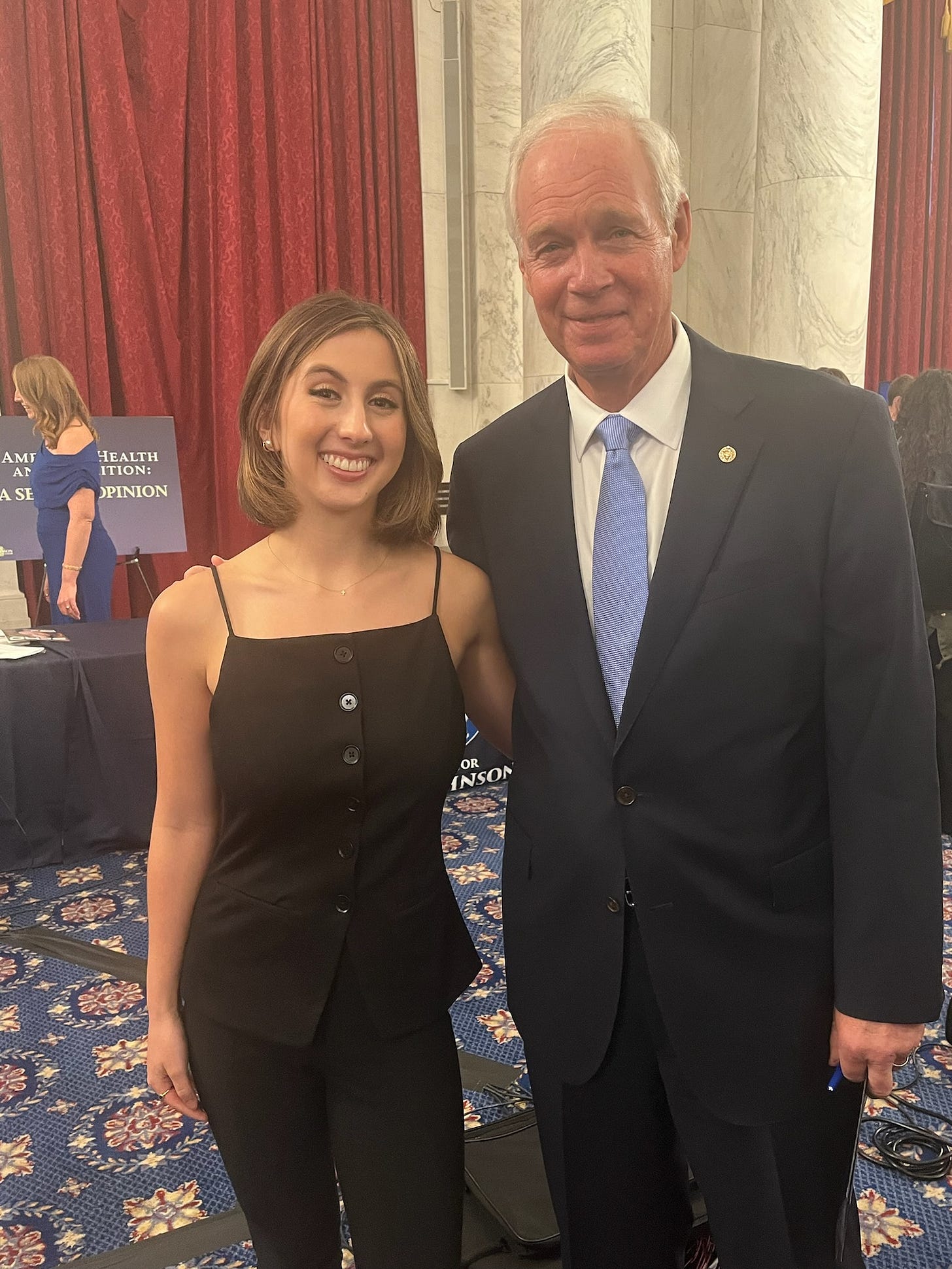

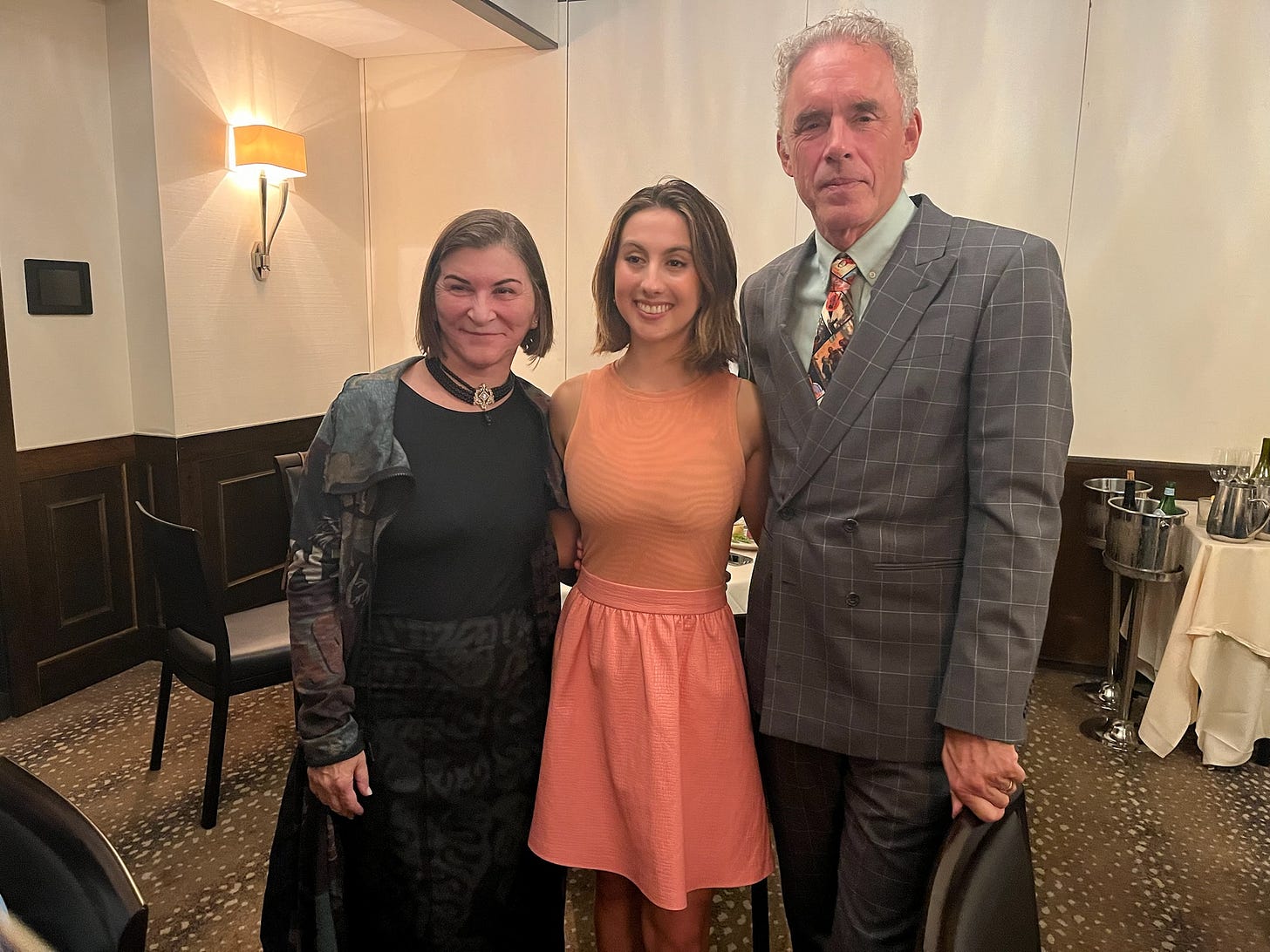
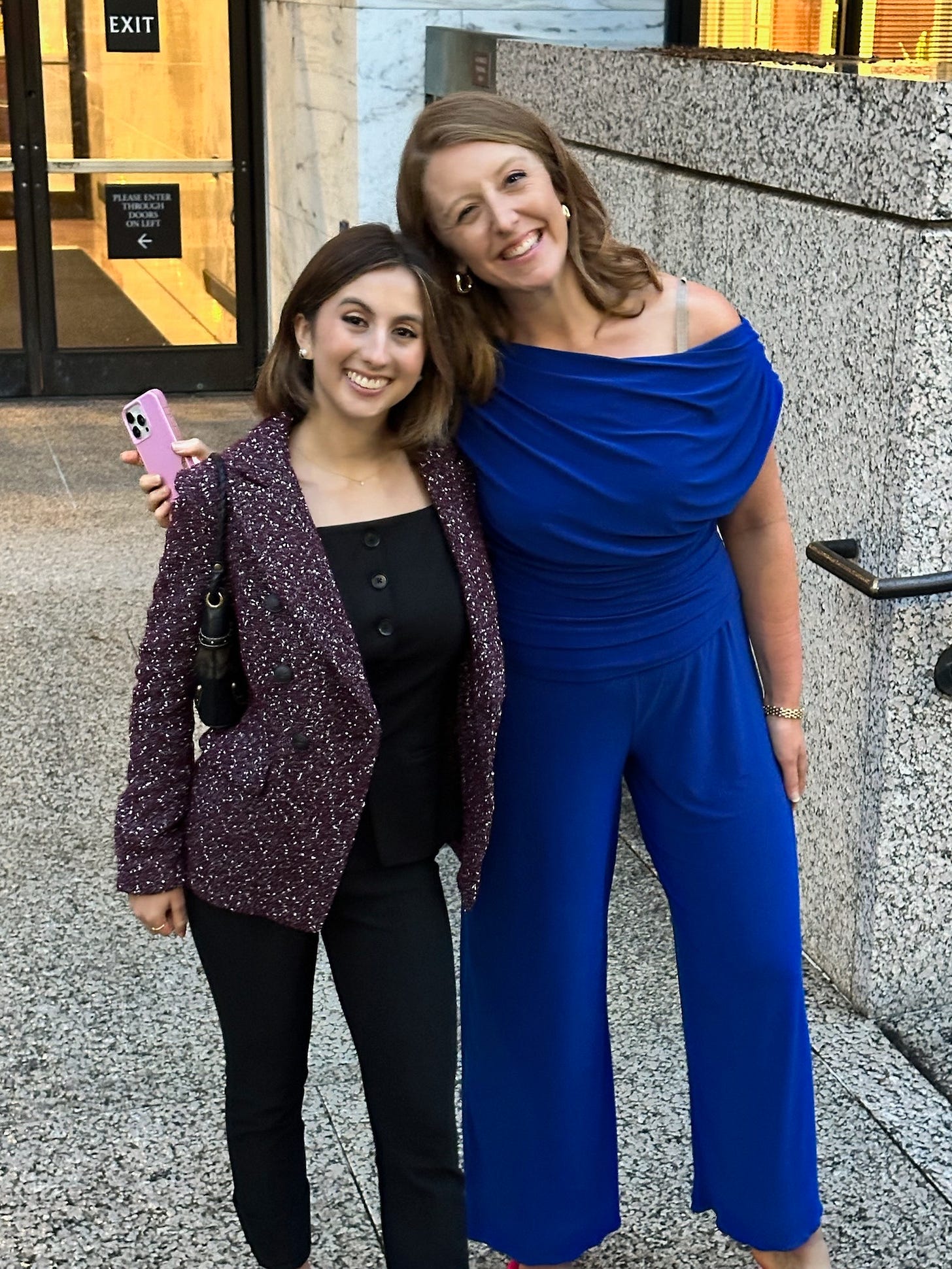

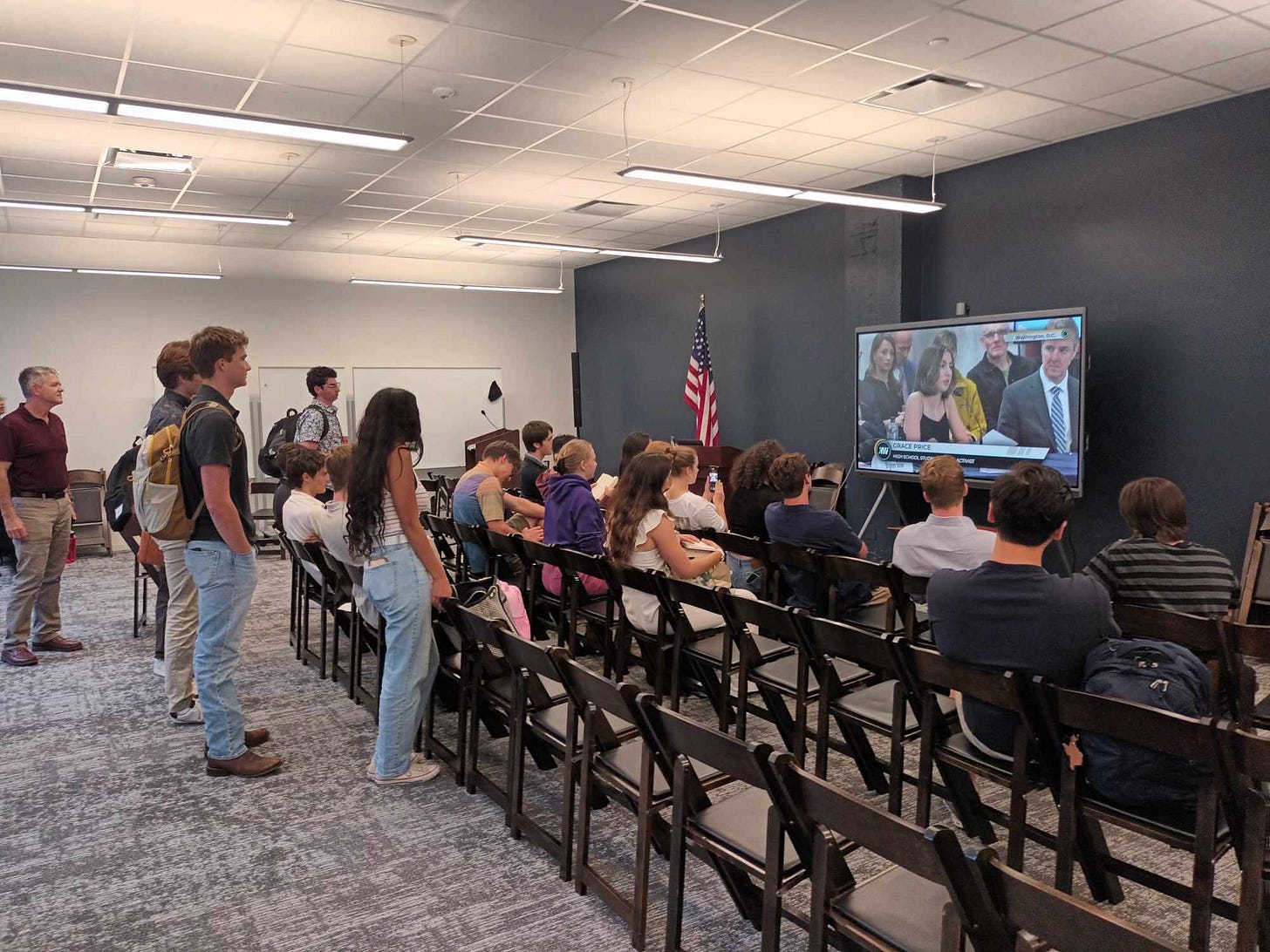

I commend to your attention Dr. Brooke Goldner and her nutritional protocols. She has gathered a large body of success stories with regaining health through better nutrition. One of the worst nutrition scams is the dairy industry whose products are definitely worse than cigarettes as a public health crisis.
Grace: I commend your passion for improving the health of your generation and all people.
After following the "Government Recommended Food Pyramid" for 30 years, staying fit, never smoking, drinking red wine with supper, I had no prior symptoms 5-bypass open heart surgery in December 2008 at age 69. Useless advice abounds, but I found the true cause of my heart disease. The simple truth, known from research in the 1980s by Cornell U Nutrition Professor Dr. T Colin Campbell, is that animal protein in excess of 5% of diet is the root cause of all major diseases that kill over 2 million Americans too early in life. A whole food, plant based diet reverses and prevents major diseases. Cardiologists advised that I would redevelop artery blockage within 10 years and need stents or replacement bypasses. After 12 years on a whole, food pant based diet I had an angiogram procedure and my 5 main bypassed heart arteries were as wide open as the day they were installed. This simple dietary change reverses and prevents most major diseases. Dr. Campbell started a foundation to educate people at www.nutritionstudies.org which is my go to source.